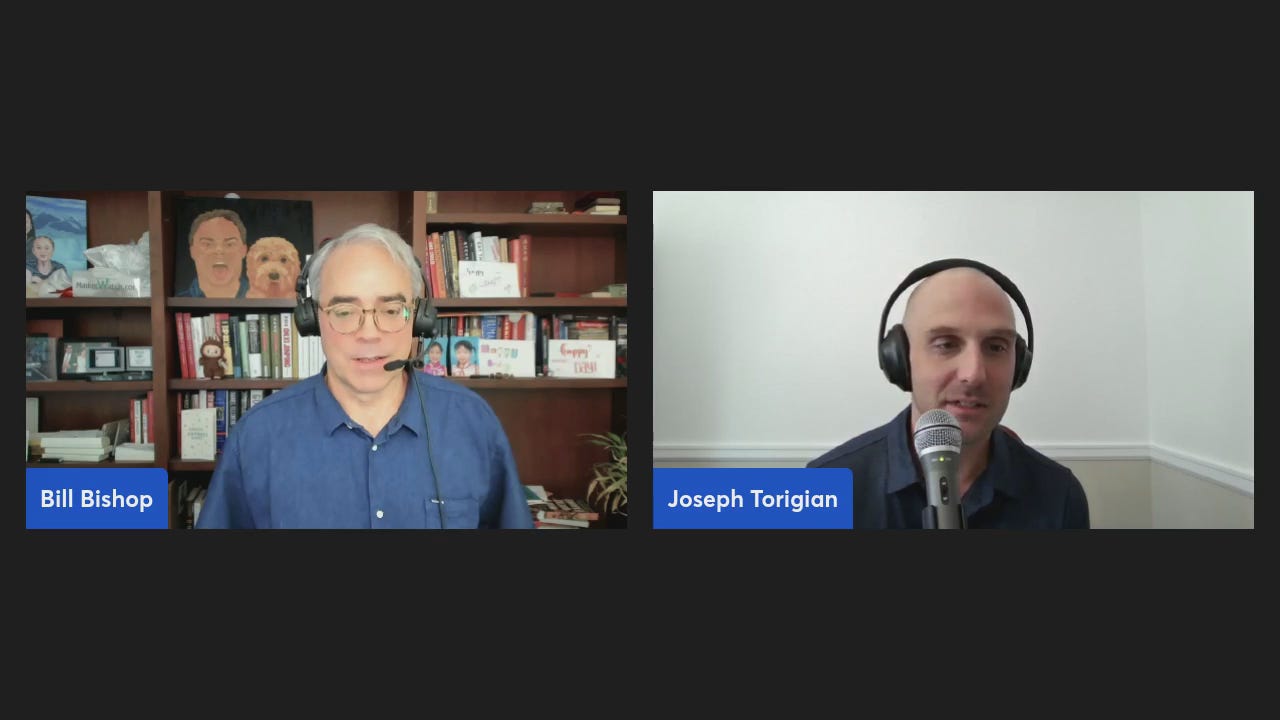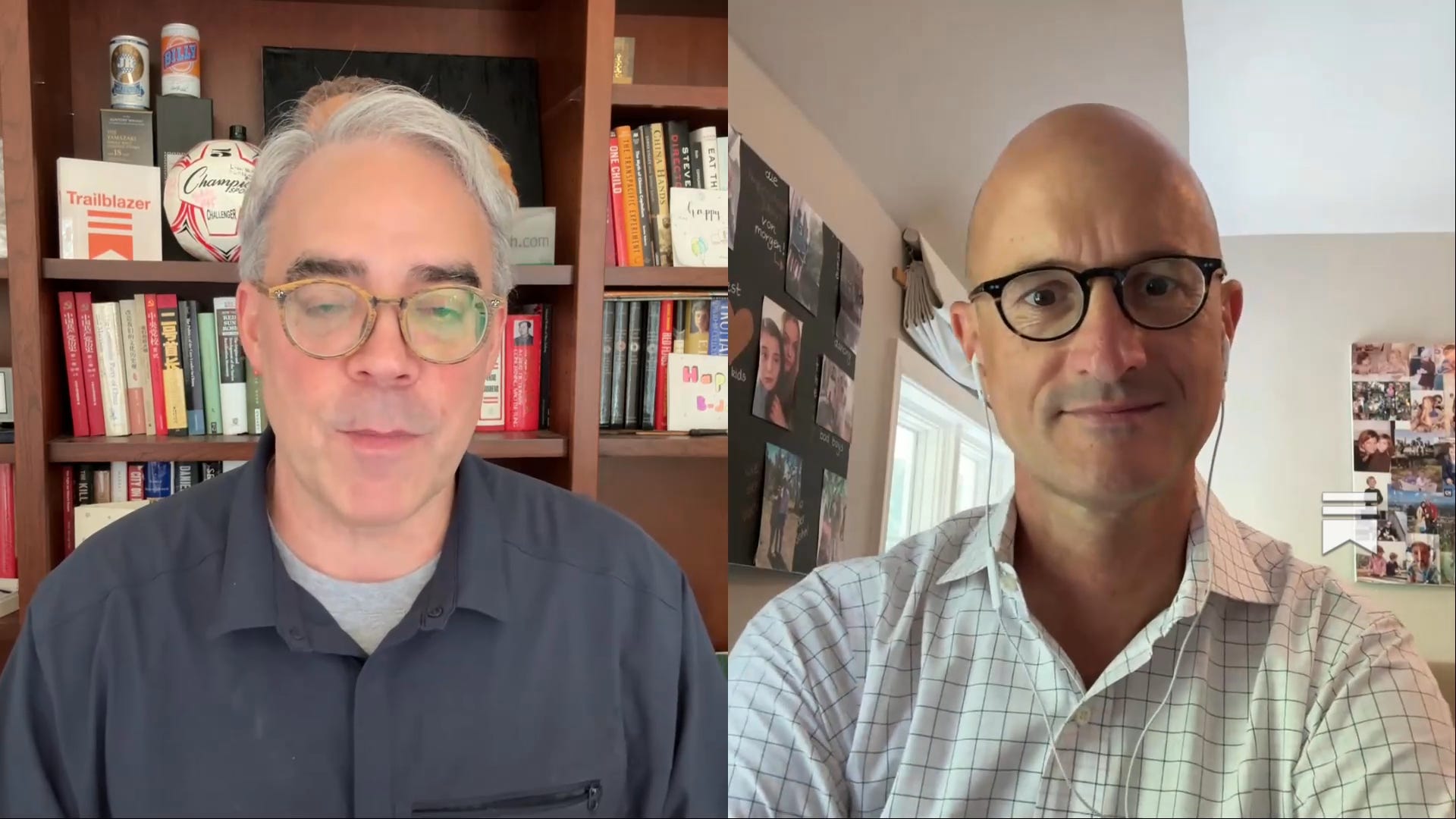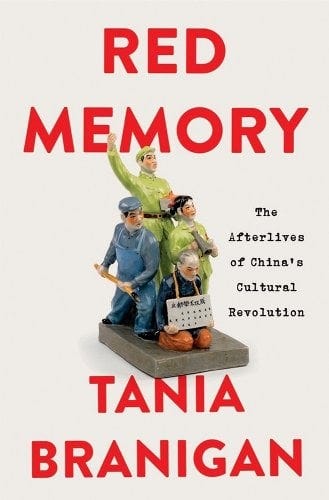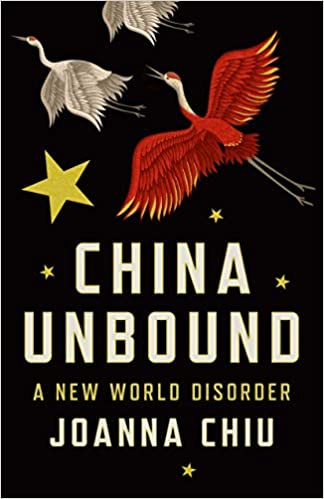Sinocism Podcast #3: Chen Long on China's economy, Evergrande, Common Prosperity and the 6th Plenum
Description
Episode Notes:
Today's guest is Chen Long, co-founder and partner of Plenum, a research firm covering Chinese economy and politics. Prior to that, he was a China economist at Gavekal Dragonomics. Chen Long is a Beijinger, and graduated from Peking University. Welcome to the podcast. It's great to have you.
2:20 - I think the economy is a little bit like ice and fire, for now. There are certain areas certainly doing pretty poorly. Of course, everyone always talking about the property market, Evergrande, and basically every couple weeks we see a property developer default…
6:00 on the power generation problems - usually December is a peak of Chinese electricity consumption. I'm not sure the current supply of coal is not ... I mean, it's better than a month ago, but they probably have to do a little bit more. So I think it's still too early to say that we have totally overcome the end of the shortage.
13:07 on whether this time is different with the real estate market - a year after Beijing and many local governments introduced restrictive policies, finally, we had three months in a row of property sales volume falling by double digits, on a year on year basis. But this is just three months, right? If you look at the previous cycles, especially 2015, 16, we could have the down cycle for 15 months. But this is just three, right? So Beijing has not blinked yet, because it's only three months.
16:30 on Evergrande - I think there was a little bit of overreaction, especially when you see headlines linking Evergrande to Lehman Brothers, and this sort of thing. And I have to say that this is at least the third time I hear a Chinese Lehman moment in the last ten years.
35:50 on the 6th Plenum and likely historical resolution - The previous ones were all about resolutions on certain questions of the party's history. Right? And this one is not uncertain questions. There is no question. It is resolution on the party's accomplishments over the last 100 years, and the lessons. So I guess it's a big, big summary about what he has done. And, of course, this one I think will cement him as the core, right? And we have to follow whatever he thinks we should do so
Links: The Plenum website.
Transcript:
Bill:Hi everyone. Today's guest is Chen Long, co-founder and partner of Plenum, a research firm covering Chinese economy and politics. Prior to that, he was a China economist at Gavekal Dragonomics. Chen Long is a Beijinger, and graduated from Peking University. Welcome to the podcast. It's great to have you.Chen:Thank you, Bill. It's my honor to be your third guest.Bill:Oh, well, third time is the charm, I hope. And I hope things are well. And I hope things are well in Beijing. I have to say, I very much miss this time of year in Beijing. There is something really special about autumn in Beijing.Bill:So, to kick off, today, I think we want to talk about the state of economy, and various themes related to that, including common prosperity, and real estate, the sixth plenum that's coming up. But, to start out, could you just give a brief intro about yourself, and more specifically what Plenum does?Bill:Just for listeners, it's a high end research service. The website is at Plenum.ai. And it's really terrific. It's one of my top most favorite research services on China now. They're really sharp on economy and politics.Chen:Yeah. Thank you, Bill. I think, Bill, you have done basically all the marketing I need to do. So we are a pretty young firm. I mean, we were founded two years ago, almost exactly two years ago. And that's when we first started to publish reports. And we write on Chinese economy, policies, politics, geopolitics, other stuff. And we serve institutional clients. Some are financial institutions, some are non-financial corporations.Chen:And I think where we are a little bit different from others, is the team is basically entirely Chinese nationals. But, of course, we'll come from different backgrounds. A lot of people work in the US for many years. And, right now, I'm based in Beijing. Yeah.Bill:And I first came across your work, I think, because you were working with Arthur Kroger, over at Gavekal DragonomicsChen:Yes. I was at Gavekal for almost six years. Yeah.Bill:Right. And I think that's where I first started reading your work. So, anyway, it's great to have you. I've always been a big fan. So-Chen:Yeah. Thank you, Bill.Bill:From a top level, could you just give us your view on what's going on in the economy in China, and where things are?Chen:Yeah. I think the economy is a little bit like ice and fire, for now. There are certain areas certainly doing pretty poorly. Of course, everyone always talking about the property market, Evergrande, and basically every couple weeks we see a property developer default.Chen:But, on the other hand, you also see this energy crunch, which actually was because energy demand was really strong, right? And industrial demand was strong. And then the grid and then the power plants could not meet up with that demand. So you basically have one big sector of economy, and actually several big sectors, apart from the real estate, you have the automobile market actually shrinking this year, general consumption were pretty mediocre, right? Because whenever there's a COVID cluster, you have local governments will restrict travel, or implement some sort of lockdown for two or four weeks. So consumption will be affected.Chen:But, on the other hand, the export is really strong, right? We're probably seeing the best export performance since 2011. That's the best we have in a decade. And there's no sign that this is putting off. A lot of people have said, "No, this is just temporary. Not going to be sustainable." I've been hearing that argument since a year ago. And, right now, it's still really hot. So that's why you have certain sectors ... So that's a little bit special, I think, compared with any time in the last decade. Yeah.Bill:And, certainly, specifically around the energy challenges, you said it was really because demand was so high. How quickly do you think that the ... There have been a whole flurry of measures from the NDRC, and other government bodies, about making sure that the coal supply increases, and cracking down on price speculation.Bill:And, I mean, how quickly do you think that these regulatory actions are going to solve the problem? And, the reforming or the changing in the price mechanism, is that enough to make the power generators actually make money now, so they're more willing to produce energy? Or are we still going to be looking at probably fits and starts over the next few months?Chen:Yeah. I think a lot of the power plants may not be losing money at this point. The government basically did several things at the same time. One, they told all the coal miners just to increase supply as much as you can. And, two, they told the coal miners also to restrict the prices. Basically, they set a cap. And there's a debate on what exactly is the cap, because there are several different versions of the cap.Chen:But whatever version you believe in, there's a cap. And the cap is a lot lower than the market price we had two weeks ago. That's why we had this Zhengzhou thermal coal future price, basically halve in two weeks. And they also allow the power plants to raise the electricity prices by up to 20%, and more if the users are high energy intensity sectors.Chen:So there are flurry of changes happen just over the last months or so. And I think the coal supply has probably improved quite a bit. And we are hearing a lot less stories on companies running ... They face blackouts, or they were just told in very short notice that they have to cut production. We hear a lot less that sort of story. But that still exists, it's just a lot less than a month ago, or at the end of September.Chen:But with this winter heating season coming again, usually December is a peak of Chinese electricity consumption. I'm not sure the current supply of coal is not ... I mean, it's better than a month ago, but they probably have to do a little bit more. So I think it's still too early to say that we have totally overcome the end of the shortage.
Bill:Thanks. I mean, it is interesting how it really seemed to have caught a lot of people by surprise. I think both policy makers, but also investors. It's just interesting how that happened, and how so many people seemed to not understand what was going on, including myself.Chen:Yeah. Because, for 20 years maybe, people talk about China has over capacity in IPP, this is actually the power plants. China invested too much in some coal power plants. And I think, at one point, like 2015 or 2016, when over capacity got really serious. And then that was one of the sectors that local and others had to work very hard to cut capacity.Chen:So we never really thought for a second that China would have electricity shortage, because there's always huge supply, maybe oversupply. But I think a lot of things changed since the beginning of the pandemic. The services sector used to be growing a lot faster. But, so far, it's underperforming, while the industrial sector, which were slowing for many years, has suddenly started to outperform.Chen:So, basically, since the second quarter of last year, we have a Chinese economy moving further away from a service driven economy, to a more industrial driven economy. So that's a completely reversal of the trend since 2010, or even 2005.Bill:That's also a reversal of what a lot of economists have recommended China do, right?Chen:Yeah. I mean, people say, "No, yeah, China should become more service driven, and less industrial driven. And also, of course, more consumption driven, less i






















